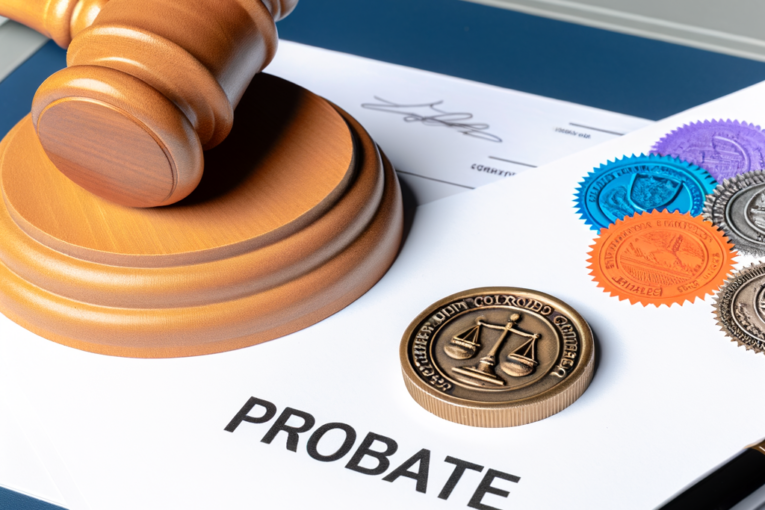Estate planning is an important process that everyone should undertake to protect their assets and ensure their wishes are carried out after they pass away. However, without proper planning, your estate can quickly become subject to legal issues, unnecessary taxes, court battles, and other problems that can undermine your legacy. The key to avoiding estate planning disasters is to understand common pitfalls, seek professional guidance, and take proactive steps to create a customized plan.
Why estate planning matters
Your estate encompasses all of your assets, including property, investments, insurance policies, retirement accounts, and more. Without an estate plan in place, these assets may not go to your chosen beneficiaries. Instead, the state will decide how to distribute your property and assets, regardless of your wishes.
This can also lead to drawn-out legal battles between potential beneficiaries. An estate plan puts you in control of who inherits your property and assets. It also allows you to choose guardians for any minor children and make provisions for their care.
In addition to determining beneficiaries, estate planning is also essential for minimizing taxes. Without proper planning, your estate may be subject to significant taxes that chip away at the inheritance you leave behind. Estate planning strategies can help you pass on more wealth to your loved ones.
Common Estate Planning Mistakes to Avoid
Many estate disasters result from simple mistakes that are easy to avoid with proper planning. Here are some of the most common pitfalls to steer clear of:
- Not having any estate plan at all Without a plan, you relinquish control over your assets and leave your family to deal with legal and tax issues.
- Failing to update beneficiary designations Beneficiary designations on retirement accounts and life insurance policies override what is in your will, so it’s crucial to keep them updated.
- Not setting up a trust: Trusts avoid probate and provide greater asset protection for your beneficiaries. They are especially useful if you have minor children.
- Leaving assets outright to heirs: Doing so exposes assets to your beneficiaries’ creditors and divorce proceedings. Trusts keep assets protected.
- Not planning for estate taxes: Estate taxes can claim up to 40% of assets over the exclusion limit if planning isn’t done.
- Choosing the wrong executor or guardian: Executors and guardians should be chosen carefully based on their capabilities and trustworthiness.
- Not updating your plan: Estate plans should be re-evaluated regularly to account for life changes.
Key Elements of an Estate Plan
An estate plan should address all aspects of your finances and assets. Here are some of the key elements to include:
- A will: specifies how to distribute your assets and names guardians for minor children. Without one, the state decides.
- Living trust: This avoids probate and provides greater asset protection than a simple will.
- Healthcare power of attorney: This allows someone to make medical decisions on your behalf if you’re incapacitated.
- Financial power of attorney: Let someone manage your financial affairs if you become incapacitated.
- Life insurance policies: Provide funds for your family to cover debts and expenses without liquidating assets.
- Updated beneficiary designations: This ensures your assets go to the right beneficiaries.
- A letter of instructions provides guidance to your executor on where to find important documents and how to handle your affairs.
Seeking professional help
Estate planning requires navigating complex financial and legal matters. An experienced estate planning attorney can save you time, money, and frustration by helping you:
- Create a customized plan based on your family dynamics and asset profile.
- Ensure your plan is legally valid and accounts for state-specific laws.
- Minimize estate taxes through planning strategies like credit shelter trusts, qualified terminable interest property (QTIP) trusts, gifting, etc.
- Establish trusts and other structures to protect assets.
- Update documents as needed to account for life changes.
Look for an attorney well-versed in estate law and tax planning. Ask friends and family for referrals, read reviews online, and interview multiple attorneys before deciding.
The Consequences of Poor Planning
Neglecting estate planning or making common mistakes can result in a number of unfortunate outcomes, including:
- Loss of control over your assets: The state will decide who gets your property without clear wishes.
- Family disputes: Ambiguity over asset distribution often results in bitter fights between heirs.
- Probate delays: The court process of validating your will and administering your estate can take over a year in some cases.
- Unnecessary taxes: Estate taxes can siphon off up to 40% of your assets without proactive tax planning.
- Asset mismanagement: Heirs may not manage their inheritance responsibly without asset protection structures.
- Guardianship issues: Without clear guidance, the care of your minor children will be decided by the courts.
Take action today.
Don’t procrastinate on estate planning. The consequences of not having an adequate plan in place can be severe. Schedule a consultation with an estate planning attorney and get started on your plan today to avoid these disasters and gain greater peace of mind.
With professional guidance and a proactive approach, you can craft an estate plan that properly distributes your assets, protects your beneficiaries, and ensures the secure future you envision for your loved ones.





